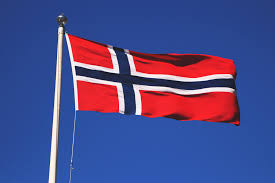For foreigners seeking a fresh adventure, Serbia is becoming a more popular destination. It is not unexpected that a lot of expats decide to move to Serbia given its fascinating history, hospitable population, and affordable way of life. Finding work in a foreign place may be difficult, though, particularly if you are unfamiliar with the labor market and its customs. The resources to find a job in Serbia, salary and income taxes, and advantages of working in the country will all be covered in this article’s guide for expats.

Guide on finding a job
You can search for or secure a job in the country by following the below-mentioned steps.
Research the employment market
It’s crucial to do some research on the employment market before you begin your job hunt. This will assist you in comprehending the sorts of employment that are accessible as well as the need for your skills. Websites like those of the National Employment Service and the Serbian Chamber of Commerce provide information on the labor market.
Keep your CV and cover letter up-to-date
Your CV and cover letter are your first opportunity to create a strong first impression on potential employers. Make sure your resume and cover letter are current and appropriate for the employment market in the country. To ensure that your CV and cover letter adhere to local norms, you might need to make some changes.
Apply for jobs
After you’ve found employment prospects that suit your qualifications, it’s time to apply. Make sure you thoroughly read the job description and customize your application for the exact position. After submitting your application, you want to get in touch with the company to let them know you’re still interested in the job.
Resources to find a job in Serbia
The following are the resources to search for jobs in Serbia.
Infostud
Infostud is a well-known job-search website in the nation offering job ads across a range of sectors.
Poslovi Infostud
Another well-liked job-search portal in the country is Poslovi Infostud, which features job ads across several industries.
In Serbia, LinkedIn is a useful resource for networking and locating employment possibilities. You may join industry organizations, network with professionals in your sector, and look for job openings.
Recruitment agencies
You can get assistance from recruitment companies in locating job openings that fit your qualifications and expertise. Adecco, Manpower, and Hays Recruitment are a few of the best employment firms in the country.
Salaries and income taxes in Serbia
Serbian wages vary according to the profession, position, and amount of experience. In the nation, the typical monthly wage is between 500 and 600 euros. However, wages in other sectors, including IT and banking, can be significantly higher.
Serbia has a progressive income tax rate that ranges from 10% to 15%. Income earned determines the tax rate, with those who earn more paying a higher rate. Additionally, certain jobs could provide pensions, paid time off, and health coverage.
Benefits of working in Serbia
The following are the main benefits of working in the country.
Cheap cost of living
In comparison to many Western European nations, the nation has a cheap cost of living. This implies that expats may live comfortably while having lower daily costs.
Expanding economy
The Serbian economy is expanding and offers several chances for trade and investment. This indicates that there are several employment openings in a range of sectors, including manufacturing, finance, and information technology.
Central location
Serbia’s location in the middle of the Balkans makes it a hub for commerce and tourism. Travel to neighboring nations including Croatia, Hungary, and Romania is simple for expats.
You may also find these articles helpful
Things to know before immigrating to Serbia
Best universities to apply for in Serbia as an expat



